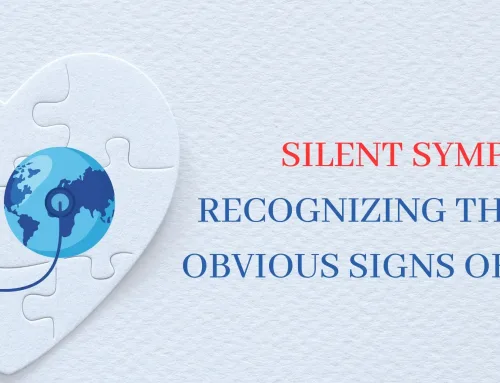The treatment landscape for Thyroid Eye Disease (TED) has recently encountered legal challenges, with the focus on Tepezza, a drug manufactured by Horizon Therapeutics.
Allegations of permanent hearing loss associated with Tepezza have led to a burgeoning class action, prompting heightened scrutiny from regulatory bodies and the law. As the lawsuits unfold, the impact on patients, pharmaceutical companies, and the future of Thyroid Eye Disease treatment remains uncertain.
In this article, we will dive into the evolving legal landscape surrounding Tepezza, exploring FDA warnings, Amgen’s acquisition, and ongoing litigation complexities.
Tepezza Lawsuits Gain Traction
Recent developments in the Tepezza hearing loss lawsuit have seen an increasing number of plaintiffs joining the legal battle against Horizon Therapeutics. Plaintiffs allege negligence on the part of the pharmaceutical company, claiming that it failed to adequately warn about the potential risks associated with Tepezza.
The case of a Florida woman who recently became a plaintiff serves as a representative example. Having received Tepezza infusions for thyroid eye disease from August 2022 to April 2023, she alleges suffering permanent hearing loss after her last infusion. Her lawsuit contends that Horizon Therapeutics negligently failed to provide adequate warnings about the potential risks associated with Tepezza.
TorHoerman Law notes that the lawsuit focus has shifted to the discovery phase after disagreements revealed the defendant’s non-compliance with the initial discovery requests. This early conflict sets the tone for a complex legal battle ahead.
FDA’s Warning and Regulatory Response
The FDA’s intervention in the Tepezza controversy is a critical development. According to Medtruth, the agency recently updated Tepezza’s warning to explicitly highlight the risk of irreversible and severe auditory damage. This change has also been reflected in Tepezza’s product labeling.
This regulatory response influences ongoing legal proceedings while raising questions about the FDA’s role in monitoring and communicating risks associated with approved medications. The impact of this warning could extend beyond the Tepezza case, shaping future regulatory approaches to drug safety in the treatment of TED.
Amgen’s Acquisition and Liability
According to Reuters, Amgen completed the acquisition of Horizon Therapeutics in October this year. With this acquisition, Amgen has gained access to Horizon’s two key products: Tepezza and Krystexxa.
Amgen’s $27 billion acquisition of Horizon Therapeutics, initially halted by the Federal Trade Commission (FTC) over antitrust concerns, has resumed. With the deal back on track, Amgen is set to assume liability for the Tepezza hearing loss claims.
This development is significant for plaintiffs, as Amgen’s substantial financial resources may influence the outcome of settlements. The involvement of a major biopharmaceutical company adds a layer of complexity to the legal landscape, potentially reshaping the dynamics of the Tepezza lawsuits.
Pre-Approval Design Defect Claims
A legal milestone has been achieved, as the court ruled that Horizon should have developed a safer version of Tepezza prior to pursuing FDA approval. This decision challenges the traditional understanding of federal preemption in the pharmaceutical industry.
The court’s stance on pre-approval design defect claims sets a precedent, potentially prompting a reevaluation of the pharmaceutical industry’s responsibilities. This reevaluation focuses on ensuring medication safety throughout the development and approval processes.
Bellwether Trials Selection Process
According to AboutLawsuits, the judge overseeing the Tepezza hearing loss class action MDL has outlined a detailed process for selecting bellwether cases. The selection of an initial pool of 12 bellwether candidates has been finalized. This marks a crucial step in determining the strength and validity of the broader litigation.
These bellwether trials will serve as indicators for both plaintiffs and defendants. They will guide future settlement negotiations and could potentially shape the overall trajectory of the Tepezza lawsuits.
Discovery Challenges and Protocols
The Tepezza MDL faces challenges related to electronic discovery protocols and preliminary disagreements between parties regarding discovery rules. The appointment of Magistrate Judge M. David Weisman to manage the discovery process, along with overseeing potential settlements, is a critical development.
The efficiency and fairness of the legal proceedings, including the resolution of discovery-related disputes, will significantly impact the overall trajectory of the Tepezza lawsuits.
Tepezza’s Revised Indication and Future Implications
Horizon Therapeutics’ pursuit of expanded FDA approval for Tepezza, based on positive Phase 4 trial results, introduces complexity to the ongoing legal saga. The lawsuits related to Tepezza and hearing loss have raised questions about the delicate balance between pharmaceutical innovation and patient safety.
The outcomes of these developments will not only affect the Tepezza litigation but may also have broader implications for the pharmaceutical industry’s responsibility. It may influence post-approval monitoring and communication of risks associated with their products.
In summary, the Tepezza hearing loss lawsuits present a complex legal landscape with implications for both TED treatment and broader pharmaceutical industry responsibilities. The FDA’s intervention, Amgen’s acquisition, and a precedent-setting court decision on pre-approval design defects highlight key factors influencing the ongoing litigation.
The upcoming bellwether trials and discovery challenges further underscore the critical juncture in this legal saga. As Tepezza seeks expanded FDA approval, the case raises important questions about balancing innovation and patient safety. Ultimately, the Tepezza litigation is set to shape the future of drug regulation and risk communication in the pharmaceutical industry.





![Home Depot Health Check App: Employees And Associates Will Enjoy Unbelievably Great Benefits[2023]](https://timeforknowledge.com/wp-content/uploads/2023/12/Home-Depot-Health-Check-500x383.webp)



